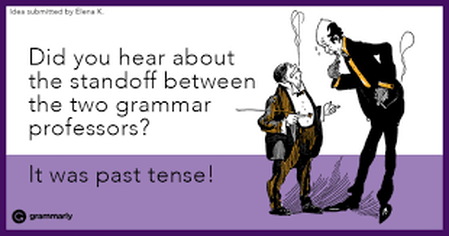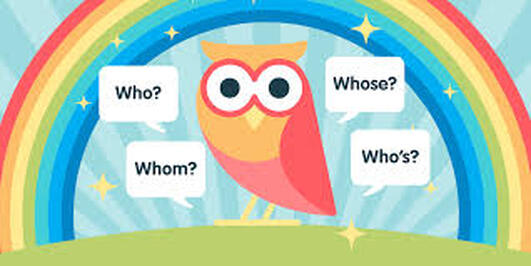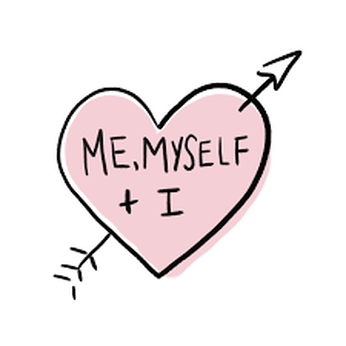 EEK! PEEK and PEAK can be scarily difficult to keep straight, while PIQUE is so unique, it can be frightening all on its own. So let's address this fearsome trio one at a time! It helps to remember that EEK lurks inside PEEK. Because if you PEEK at someone who is getting dressed, that person is likely to yell EEK! Then hit you in the head for being a peeping Tom or Tilly. PEAK refers to the highest point of a mountain. If you climbed to the PEAK of Mount Everest, you'd be too tired to yell anything at all. PEAK also means "pinnacle," "top," or "limit" as with an athlete attaining a PEAK fitness level, a person reaching the PEAK of his/her career, or a car in PEAK condition. I'm sure you can come up with other ways to use PEAK, as it's quite versatile. PIQUE is pronounced the same way as the other two, hence its inclusion in the list. As a noun, PIQUE means irritation or vexation. As a verb, it can mean stimulate, awaken, or provoke, or it can also mean irritate, annoy, or vex. This homophone trio can be summed up like this: John was PIQUED that he kept mixing up PEAK and PEEK. Now he's unvexed and standing on the PEAK of Holt Hill playing PEEK-A-BOO with his baby sister. Happy Halloween!! Sincerely, Laura Fineberg Cooper A Spoonful of Grammar
3 Comments
 DO you realize that DO, DOES, and DID are fighting words? Read on and all will be explained. And don't worry: there are lots of examples! DO - present tense; singular and plural; used with I, you, we, and they Do I have to answer that question? Do you or Henry have a bike I can borrow? Do your mother and father know where you're going at midnight? Do we have to go to the dentist? I went last year! Do they know what time we are meeting? DOES - present tense; singular only; used with pronouns he, she, it, proper names, indefinite pronouns (anyone, someone, somebody, etc.), collective nouns (class and team, etc.) and more Does she go to this school? Does Angel have a dog? Does anyone know what's happening tomorrow? Does the class have a answer? Does Betty or Bob have a bike I can borrow? DID - past tense; singular and plural; used liberally Did you answer all the questions? Did he remember to bring his homework to school? How did the team do at Saturday's football game? I did not leave the lights on. Warren and Silvester did one hundred laps each. DO, DOES, DID often feature in pointed questions, which can often lead to pointed responses. It's easy to see how these words can lead to arguments!! Toodle-lo until next Sunday, when my Halloween post airs. Have a great week! Sincerely, Laura Fineberg Cooper A Spoonful of Grammar  Whooo's ready to discuss WHO, WHOM, WHO'S, and WHOSE? I pledge to provide some quick and easy ways to tell them apart. Let's begin with lesser used WHOM. Think about all the times you've seen it in print: not many, I bet, since it sounds fussy and formal. Here are the most common examples: FOR WHOM THE BELL TOLLS, a 1940 novel by Ernest Hemingway. TO WHOM it may concern: (fill in the blank). WITH WHOM AM I SPEAKING? Technically, WHOM is always an object, never a subject. But in my book, there's an easier way to think of it. WHOM looks its formal best when introduced by FOR, TO, or WITH. And since you'd never say or write FOR WHO, TO WHO, or WITH WHO, you'll never get WHO and WHOM mixed up again. Now to address WHO'S vs WHOSE. WHO'S is the contraction form of WHO IS, while WHOSE is the possessive form of WHO. With contractions, the component words must fit your sentence too. In other words, if WHO IS doesn't make sense, WHO'S won't either. Here are examples of each: WHO'S knocking at my door? (Does WHO IS work in that sentence? YES!) WHOSE bike is parked in front my car? Is it yours? Then move it already! (If the bike belongs to you, it's your possession as well as your responsibility!) Whooo's confused now? Hopefully, none of you! But if you are, please don't hesitate to ask for clarification. Sincerely, Laura Fineberg Cooper A Spoonful of Grammar P.S. Spoonfuls #1-#24 are summarized (with links) in Spoonful #25. I'll do another summary in Spoonful #35, and every ten posts after that.  This spoonful is all about ME, MYSELF, and I. But please don't think I'm going to share my entire life story! Instead, my aim is to explain the difference between these three self-centered words. I is a great place to start. When it makes an appearance, it's ALWAYS a SUBJECT pronoun. Consider the following sentence. I tutor kids and adults at the local library. Since I'm the one doing the tutoring, I am the SUBJECT. The ones receiving the tutoring - kids and adults - are the OBJECTS. (The local library answers where the tutoring occurs and is a prepositional phrase.) In contrast, ME is ALWAYS an OBJECT pronoun. Even if you write, "Give that ball to me!" the person who has the ball (most likely you) is the SUBJECT, not me. But where I see the most errors is when ME pals around with another name. Here's an incorrect example: "Are you coming to band practice?" Eric asks Sue and I. (WRONG!) "Are you coming to band practice?" Eric asks I. (WRONG AGAIN!) How do I know I is incorrect? REMOVE THE OTHER NAME! Eric asks me sounds right but Eric asks I does not! Unfortunately, Eric asks Sue and I doesn't sound quite as bad, and grammar checkers don't typically catch this error. Here are the same two sentences written correctly. "Are you coming to band practice?" Eric asks Sue and me. (CORRECT!) "Are you coming to band practice?" Eric asks me. (CORRECT AGAIN!) Now you might be wondering when Sue and I would be appropriate to use. When we share the SUBJECT, of course! Here's an example: Sue and I both read to children. Who does the reading? Sue and I. That makes us the SUBJECT. Who are the OBJECTS of our action? The children. MYSELF is another story altogether. It's known as a reflexive pronoun (no, there will not be a quiz), and is only used in addition to I. Why is it called reflexive (based on the root 'to reflect')? Because the SUBJECT and OBJECT are the same. Here's an example: I write down notes to remind MYSELF about important appointments. I just need to remember where I put the notes afterward! That's a wrap. I hope you'll never be confused about ME, MYSELF, or I again. If you like this or any of my other spoonfuls, please feel free to share! Sincerely, Laura Fineberg Cooper A Spoonful of Grammar |
Welcome to
|
 RSS Feed
RSS Feed
